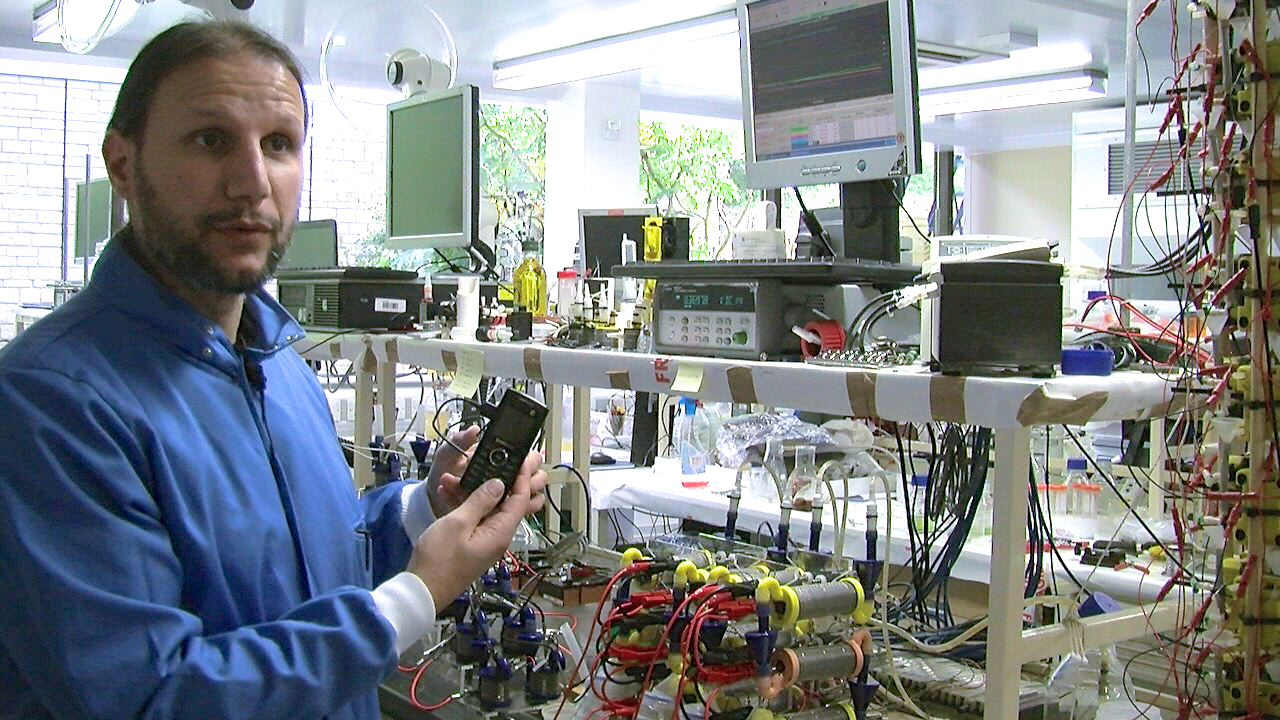Video: Urine-powered mobile phone charger lets you spend a penny to make a call
New microbial fuel cells contain bacteria that produce electricity from urine as part of their natural life cycle

A group of researchers from the University of the West of England have invented a method of charging mobile phones using urine.
Key to the breakthrough is the creation of a new microbial fuel cell (MFC) that turns organic matter – in the case, urine – into electricity.
The MFCs are full of specially-grown bacteria that break down the chemicals in urine as part of their normal metabolic process. The bacteria produce electrons as they consume the matter and it this natural process that creates a small electrical charge to be stored in the MFC.
“No one has harnessed power from urine to do this so it's an exciting discovery,” said Dr Ioannis Ieropoulos, an engineer at the Bristol Robotics Laboratory where the fuel cells were developed.
“The beauty of this fuel source is that we are not relying on the erratic nature of the wind or the sun; we are actually reusing waste to create energy. One product that we can be sure of an unending supply is our own urine.”
Read More: Compare providers and find the best deals with our Mobile Phone Deals page
After the urine has been processed by the MFCs the electrical charge is stored in a capacitor. In the first test of the new invention, researchers simply plugged in a commercial Samsung phone charger and were able to charge up the handset.
Although the amount of electricity produced by the fuel cell is relatively small – only enough for a single call on the mobile – researcher believe it might be installed in bathrooms in the future, helping to power electric razors, toothbrushes and lights.
The device is about the size of a car battery, but engineers believe that future versions will be smaller and more portable. With each fuel cell only costing around £1 to produce such devices could provide a new, cheaper way of generating power.
The research was sponsored by public money from the Engineering and Physical Sciences Research Council and the Gates Foundation (the charity run by Microsoft-founder Bill Gates), with the scientists hopeful that the technology could be beneficial in developing countries.
"One [use] would be to put these into domestic situations or it could be used in remote regions of the developing world,” said Dr Ieropoulos.
"The fuel cells we have used to charge a mobile phone with hold around 50ml of urine but the smallest we have had working in the laboratory hold 1ml, so we can make them a lot smaller. Our aim is to have something that can be carried around easily.”
“The concept has been tested and it works – it's now for us to develop and refine the process so that we can develop MFCs to fully charge a battery.”
Join our commenting forum
Join thought-provoking conversations, follow other Independent readers and see their replies
Comments
Bookmark popover
Removed from bookmarks